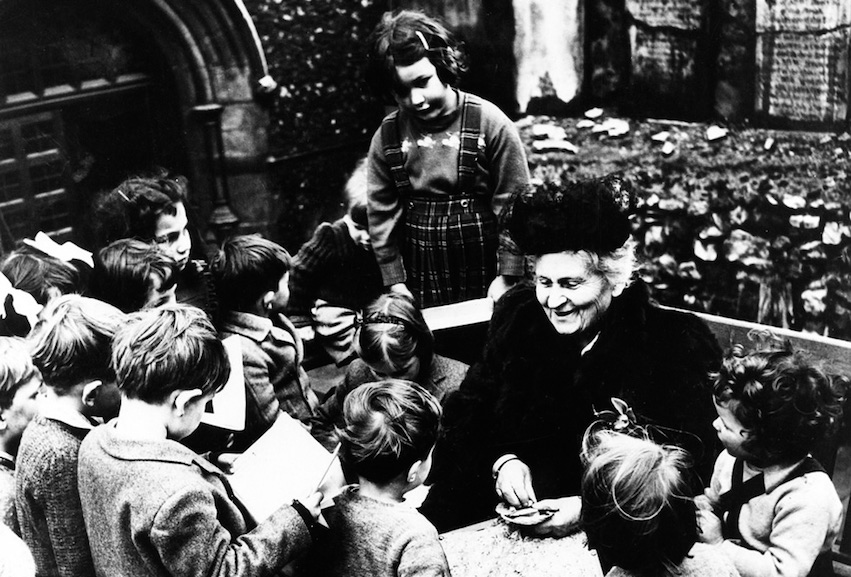Founder of the Montessori Method
Maria Montessori was born in 1870 in Italy. In 1894, she was the first woman to receive a medical degree in Italy. She was also an anthropologist and an astute observer of the early child. Dr. Montessori became interested in education as a doctor treating “special needs” children. Her work with a group of young, mentally deficient children, who began reading and writing and passing exams meant for the typical student, drew public attention and led her to test her discoveries on the average child. She did this not as a philosopher nor an educator, but as a scientist, using the classroom as a laboratory for observing children and testing the validity of approaches for aiding them in the spiritual, emotional, intellectual, and physical growth.

Dr. Montessori believed that each child is born with a unique potential to be revealed, rather than a “blank slate” waiting to be written upon. She felt the goal of early childhood education should not be to fill the child with facts from a pre-selected course of studies, but rather to cultivate his/her own natural desire to learn.
Her main contribution to those raising and educating children are in these areas:
- preparing the environment in each stage of life
- learning to observe the child living freely in the environment, so that we can help nourish the child’s complete life
The results of Dr. Montessori’s work with children at the Casa dei Bambini, “The Children’s House,” in the slums of Rome in 1907, became world history and the subject of her first books. Dr. Montessori then summarized her methods, lectured, founded schools all over the world, and published many books, which have been translated into 22 languages. She died in the Netherlands in 1952 after receiving, in her later years, honorary degrees and tributes for her contribution to mankind.